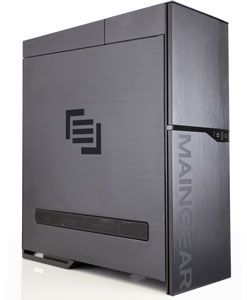Eh, "live long enough to witness its decline" is the key point made here. It's easy enough to see desktop systems will migrate to mobile, after the technology reaches a point that a mobile system can do everything a fully-featured desktop could do without any compromises having to be made in battery life, portability, or cost. That time is obviously a few decades out, best case.
Of course, something could always change that. If, or more likely, when virtual reality is suddenly invented, it'd probably take leading edge horsepower just to power it. And as VR became increasingly realistic and advanced it would require some of the best performance available for some time... and so that might ensure desktop PCs as we know them would have a place for a considerably longer time than IBM foresees.
Of course, there are other complications. Each home will eventually have a centralized PC to control and operate home appliances, monitor utilities, manage the environment such as with the AC/heater and lights, run the entertainment system, and eventually maybe serve a dual purpose as the user's desktop. So does this even count as a personal PC? Many people already use HTPCs to run their entertainment systems, nettops to operate smart homes and smart appliances, and still have a desktop PC ontop of all that. Once smart meters and appliances and homes take off it is just a matter of time before it makes sense to have a single powerful, centralized home system that is capable of running everything.
Other things might be developed too... just look at Watson. It takes 2,880 Power7 "cores" just to run a software program that can understand human language and answer questions queried in the same language. Having a home/house computer that can talk, converse, and perform tasks like almost any Sci-Fi movie or Star Trek episode will require the same amount of processing power. I suspect desktop PCs will be capable of handling it much sooner than any laptop will.


